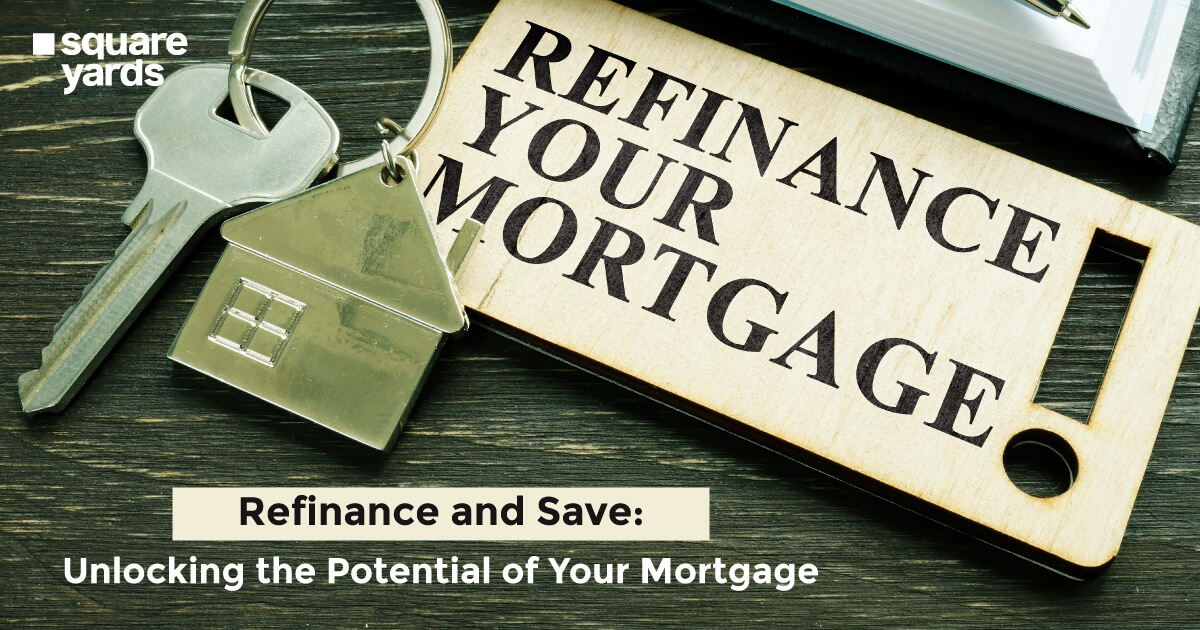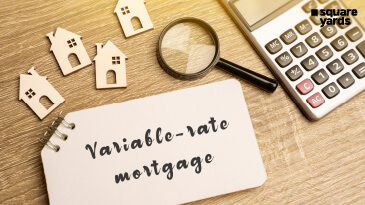Think of it as a financial chess move. Played to potentially cut down costs or free up cash for other big-ticket items, Refinancing a mortgage offers you a new opportunity for profit. It’s really like giving your home loan a makeover, seizing the chance to tweak the original terms of your mortgage. The process is about swapping your old mortgage for a new one, potentially with perks like reduced monthly payments or a quicker path to being mortgage-free. Refinancing mortgage Canada isn’t a decision to take lightly; it demands a keen eye on the financial chessboard and a deep understanding of what’s at stake. Because you’re updating a vital service or gadget in your life, aiming for a sweeter deal. Let’s dive right into how you can fine-tune your mortgage, aiming for fiscal wellness and a secure financial future. The blog will help you take a better look at the strategic decision-making that can help you safeguard one of your largest assets: Your Home.
Refinance Mortgage: Definition
Refinancing a mortgage is essentially about making the mortgage work better for the family, like lowering monthly payments or tapping into the home’s value for significant expenses. It’s a decision that involves careful consideration of both benefits and costs. Think of a mortgage as a set of rules on how a family pays for their house. Refinancing the mortgage means changing these rules. Families might do this to reduce their monthly payments, get extra cash for home improvements, or even purchase another property.
However, changing these rules can sometimes bear additional costs, particularly if done earlier than originally planned. But refinancing isn’t the only option. There are various ways to manage finances without altering the mortgage. Each family’s situation is unique, so the best choice varies. As equity is the portion of the house already paid for, it can be kind of like savings. The more of the mortgage paid, the higher the equity. The Loan-to-Value ratio compares the amount still owed on the house to its value. A lower LTV ratio is usually better. When a significant portion of the mortgage is paid off, families can access this equity through refinancing, sometimes up to 80% of the home’s value. For example, if a house is worth $500,000 and half the mortgage is paid, refinancing could provide access to $150,000. When done right, refinancing mortgage Canada can be a strategic move that can provide flexibility and financial benefits.
Using A Mortgage Refinance Calculator
Refinancing can sometimes involve extra costs, like a prepayment penalty, which is a small charge for making changes ahead of time. Using this calculator is straightforward. You just need a few details: what you hope to achieve through refinancing (like lower monthly payments or accessing your home’s equity), the remaining balance on your current mortgage, and your home’s value. Input these numbers into the calculator, and see its magic, showing different options. It calculates new payment amounts, how much cash you could potentially get, and possible interest rates. Using a mortgage refinance calculator means being thorough and exploring all options, ensuring you make the best financial decision.
Choosing If Refinancing Is Right For You
When considering refinancing, it’s like solving a puzzle. You need to balance the benefits, like lower payments or getting extra cash, against the drawbacks, such as any penalties for changing your mortgage ahead of time. So, it’s a good idea to keep an eye on current mortgage rates. If they are lower than your current rate, refinancing could save you money over time. However, if the penalty for refinancing early is too high, it is better to wait until your mortgage is closer to the ending term. Deciding if refinancing is right for you depends on your specific situation. It involves some careful thinking and calculations to make sure it’s the right financial move for you. With a bit of research and understanding, you can make these important decisions confidently.
Fees For Breaking A Mortgage
There are various forms of compensation that you might have to pay when looking to refinance your house. Some of them are:
-
Prepayment Penalty
This is like a fee for quitting a game early. If a family refinances before their mortgage term is up (usually 5 years), they might have to pay this. It’s often a lot of money, like $1000 or more. It’s calculated in a tricky way, but it’s basically about how much interest they would have paid if they didn’t change the mortgage.
-
Mortgage Release Fee
If a family switches to a different bank for their mortgage, this fee must be paid. It’s almost like because you chose to change partners before the deal was complete, you have to pay an extra credit. This fee is usually around $200-300.
-
Home Inspection Costs
These are like getting a check-up for your house. An appraisal tells you how much your house is worth now, and an inspection is a more detailed look to see if everything’s okay. Both of these can cost between $300 to $500.
-
Mortgage Recording Fee
This is a fee for updating the records when a family refinances. Yes, there is a fee to add the data that you paid to have recorded. This fee is about $50 to $150, depending on where you live.
-
Attorney Charges
When refinancing, your family needs a lawyer to make sure everything is done right. This is probably the largest cost comparatively, usually between $750 – $1500. Sometimes, the new bank might help pay for this as part of their deal.
Refinance Mortgage: Benefits
There are many reasons why you should choose to refinance your house mortgage:
-
Securing A Reduced Interest Rate
Refinancing mortgage Canada can help your family pay less money over time if interest rates go down, like a discount.
-
Rethink Your Amortisation
This involves adjusting your repayment schedule. If monthly payments are too big, your family can spread them over more years. It’s like picking an easier, longer path that gives you more time.
-
Tapping Into Home Value
As your family pays off the mortgage, they build up money in the house. Refinancing lets them use this money for big things like fixing the house or paying for school.
-
Merge Debts
If your family has other debts with high interest, like credit cards, they can use refinancing. It’s like trading many small, expensive loans for one bigger, cheaper one.
Steps To Refinancing Mortgage Canada
It is best to approach refinancing mortgage Canada by first considering a mortgage calculator and figuring out if refinancing is a good option for you at all. You can use a special tool like a mortgage refinance calculator to see if the benefits (like lower payments or getting cash) are worth the costs. Then it is best to compare different rates, much like shopping for the best deals. Families can look at different mortgage rates from various banks or lenders or can stick with their current bank too. Once families feel like they have their minds set on a deal, they can choose to apply for a new mortgage, just like they did for the first one. Here a bank checks their job, income and credit to ensure they can pay the mortgage. The last part of the process will follow a home appraisal. The family house will be valued to find out how much the house is worth now. The families also have to pass a ‘stress set’ that all banks take to ensure they can still pay their mortgage if interest rates go up.
Assessing Financial Strain and Poor Credit Ratings
As we’ve already mentioned, the stress test is like a challenge to see if your family can still pay the mortgage if interest rates go up. When you apply for a new mortgage, the bank will check if you can handle payments at your interest rate plus 2%, or a set rate of 5.25%, whichever is higher. If a family wants to borrow more money against their house, their monthly payments might go up. This can make the stress test a bit harder to pass. But, if they get a lower interest rate or spread their payments over more time, it could be easier to pass the test. Credit scores also affect the tests. If a family’s credit score isn’t great, big banks might say no to refinancing. But don’t worry, there are still options! They can work on making their credit score better and try again later. Or, if they need to do it quickly, they can go to different lenders who might charge more.
Other Options
If you do not choose to change your financial rules, there are other cool ways to beat the odds. These also give the same benefits as refinancing your mortgage. You can choose to:
Mortgage Renewal
This is like deciding to keep playing the game with the same settings. Your family might choose to wait until their current mortgage time is up and then renew it.
Blend and Extend
Imagine mixing two different game levels to create a new one. With a blended mortgage, your family mixes their current mortgage rate with a new rate and extends the time they have to pay it off. Sometimes, they can even go back to their original payment plan if they have a certain type of mortgage.
Revise and Restructure
This is like changing the rules of your current game to make it easier. Your family can change their mortgage to have a lower interest rate, a longer time to pay, split it into two or combine it with another type of loan. But remember, not all lenders let you do this.
Opt for a Second Mortgage
This is like starting a new game while still playing the old one. A second mortgage is an extra loan on top of the first one. It usually has a higher interest rate and is used for things like paying off other debts or fixing up the house. The first bank has to agree to this new game, remember.
Making The Right Move
In the end, refinancing mortgage Canada is a simple smart way you can better manage your finances by changing your current mortgage to a new one that might work better for you. It’s important because it could lower your payments or help you use the value of your home for other needs. Make sure to do your research, think about your money situation, and understand how it will impact your mortgage in the future. The main goal is to make a choice that is good for your money and fits your financial plans.
You May Also Read
|
Guide To Mortgage Broker |
|
|
How To Calculate Trigger Rate |
|
|
Understand Open And Closed Mortgage |
|
|
All About Mortgage Renewal |
Frequently Asked Questions (FAQs)
How Much Does It Cost to Refinance My Mortgage?
Refinancing a mortgage typically costs between 2% and 6% of the loan amount, which is generally less than the closing costs for a similar purchase loan. The specific amount you'll need to pay varies based on various factors such as
Should I Refinance or Renew My Mortgage in Canada?
Deciding between renewing or refinancing your mortgage depends on your needs. Renew if you're content with your current mortgage terms. Choose to refinance if you're looking to borrow additional funds.
What options do I have if the cost to refinance exceeds potential savings?
If refinancing isn't economical, alternatives include renewing your current mortgage at its term end, blending and extending your mortgage to adjust rates and terms, restructuring to modify conditions, or obtaining a second mortgage for additional financing.
Will refinancing negatively affect my credit score?
Refinancing a personal loan or other debts leads to a hard inquiry on your credit reports, similar to other loans. This may briefly lower your credit score, but consistently making on-time payments on the new loan and existing debts can help your score recover.











